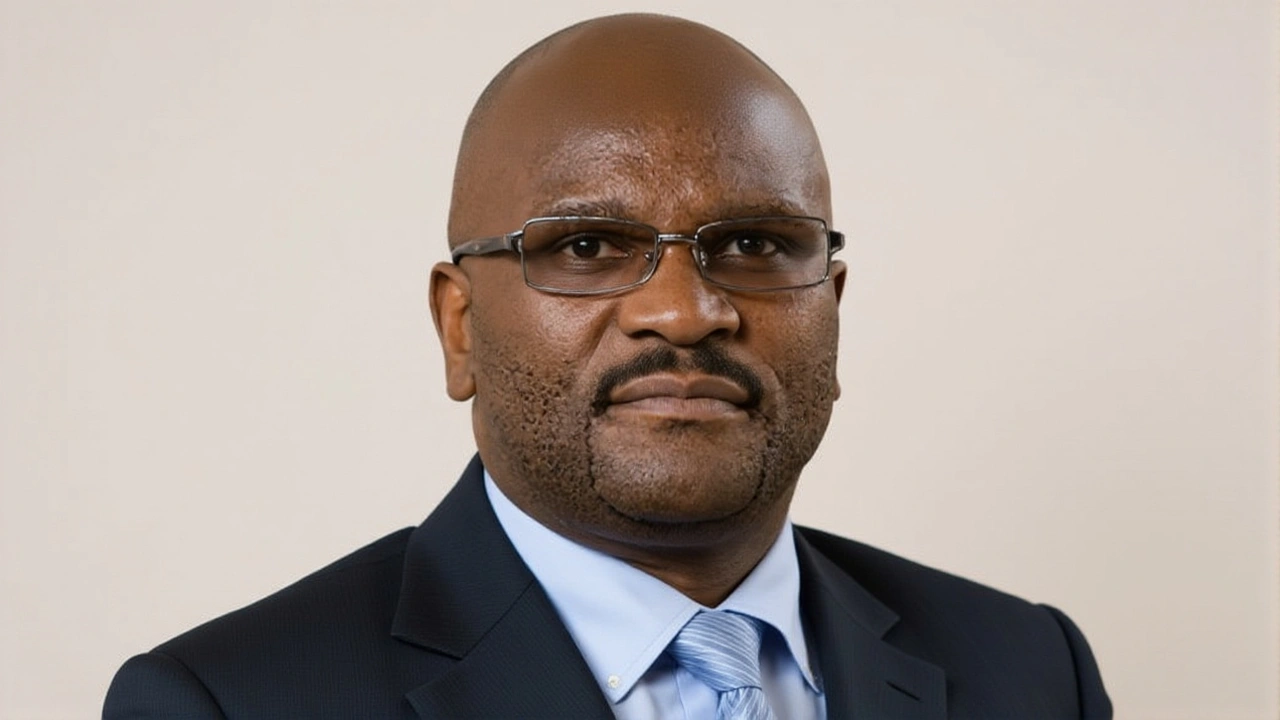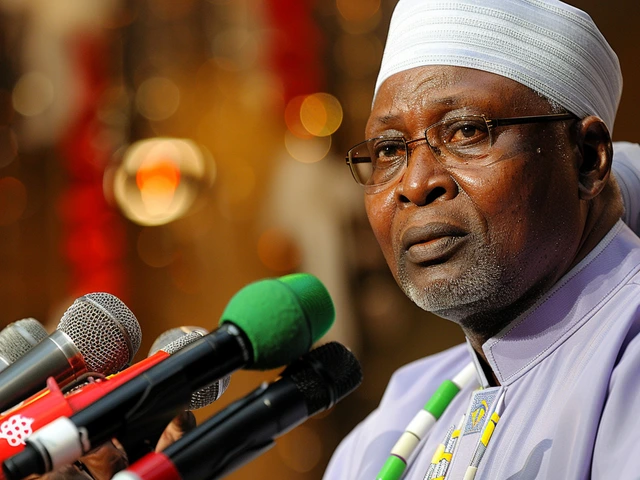When Nathi Mthethwa, Minister of the Department of Arts and Culture (DAC), told reporters on April 15, 2015 that xenophobia is a "significant stumbling block to nation building," the nation was still reeling from a wave of attacks that had left more than 60 dead and hundreds injured.
He made the comment in Cape Town, just two weeks after the Social Cohesion Report‑Back SummitPort Elizabeth. The summit, convened by the DAC, was meant to measure progress since the historic 2012 Kliptown summit on social cohesion. "Social cohesion will only succeed through all‑round and interconnected efforts for social progress," Mthethwa said, echoing a definition that links power transfer to the democratic majority.
Background: Xenophobia in South Africa
South Africa has grappled with xenophobic outbursts since the early 2000s, but the 2015 incidents were distinctive in their scale and geographic spread. Over a ten‑day period in April and May, mobs targeted foreign-owned shops in Durban, Soweto, and even smaller townships, prompting a wave of retaliatory boycotts against South African businesses in Zambia and Mozambique.
According to the South African Police Service, 113 separate incidents were recorded between April 4 and May 12, 2015. The violence sparked condemnation from the United Nations, the European Union, and, for the first time, the African Union Peace and Security Council. African heads of state, including President Jacob Zuma’s counterpart in Tanzania, called for “swift justice and regional solidarity.”
Mthethwa’s Declaration and the Social Cohesion Summit
At the Port Elizabeth gathering, Mthethwa outlined five systemic challenges that he said impede a cohesive nation: economic inequality, spatial divisions, lack of social cooperation, prejudice and stereotypes, and a fragmented sense of unity and identity. He argued that unless these issues are tackled, efforts to curb xenophobia would amount to a “band‑aid solution.”
"We cannot build a nation on the backs of fear," he told a mixed audience of civil‑society leaders, academics, and provincial officials. In a moment that would become the headline of the week, he added, "Xenophobia is a stumbling block to nation building," framing intolerance as a direct threat to South Africa’s constitutional promise of equality.
Government Response: Campaigns and Partnerships
Within weeks, the DAC rolled out a multi‑pronged awareness drive. On May 3, 2015, Mthethwa launched the campaign at the Cradle of Humankind, a UNESCO World Heritage site he described as “a symbol of Africa’s shared heritage.” The event featured the unveiling of the "Passport of Patriotism" – a booklet highlighting contributions of African migrants to South African society.
Two flagship programmes were introduced:
- Know Your Social Advocates – a school‑based module that brings diaspora representatives into classrooms.
- Community dialogue tours that visit universities, workplaces, and municipal halls to debunk stereotypes.
Partnering with the Africa Diaspora Forum, the DAC enlisted its head, Marc Gbaffou, a Ghanaian-born activist representing migrants from 21 African nations. Gbaffou warned that “ignorance among young South Africans about the rest of Africa fuels the fire,” urging the government to promote “legal pathways and a clear amnesty process” for undocumented migrants.
Reactions from the African Diaspora and the AU
The diaspora’s response was a blend of hope and caution. While many welcomed the educational outreach, several leaders pressed for concrete legal reforms. A petition submitted to the Department of Home Affairs on June 12, 2015 called for the regularisation of 1.3 million undocumented African migrants, citing the Constitution’s right to dignity.
The AU’s involvement, though largely diplomatic, signalled a shift in continental perception. During a special session on June 29, the Peace and Security Council passed a resolution urging member states to “adopt preventative measures against xenophobic violence” and to support South Africa’s reconciliation efforts.
Implications for Nation‑Building and Future Steps
The Mthethwa declaration has anchored xenophobia within the broader narrative of nation‑building. By linking intolerance to economic and spatial inequities, the government is signalling that tackling prejudice requires structural change – a stance resonant with the Ubuntu philosophy of shared humanity.
Yet challenges remain. Critics argue that the campaign’s focus on awareness overlooks the urgent need for law‑enforcement reforms. In a parliamentary debate on May 15, 2016, opposition MP Mmusi Maimane asked, “Where are the prosecutions for the perpetrators of the 2015 attacks?” The Minister’s reply highlighted ongoing investigations but offered no timeline.
Looking ahead, the DAC plans a second “Year of Africa” initiative slated for 2020, which will expand the school programme to 500 additional institutions and introduce a digital storytelling platform. Whether these measures will translate into a measurable decline in xenophobic incidents remains to be seen.
- April 15 2015 – Mthethwa labels xenophobia a nation‑building obstacle.
- March 30 2015 – Social Cohesion Summit in Port Elizabeth identifies five systemic barriers.
- May 3 2015 – Campaign launch at Cradle of Humankind.
- June 12 2015 – Diaspora petitions for 1.3 million migrants’ regularisation.
- June 29 2015 – AU Peace and Security Council discusses South African xenophobia.
Frequently Asked Questions
What sparked Minister Mthethwa’s statement on xenophobia?
The statement followed a surge of violent attacks in April‑May 2015 that left over 60 people dead and prompted regional backlash against South African businesses. The Minister used the moment to link xenophobia directly to the country’s broader nation‑building challenges.
Who is Marc Gbaffou and what role does he play?
Marc Gbaffou is the head of the Africa Diaspora Forum, an umbrella body representing migrants from 21 African nations living in South Africa. He partnered with the DAC to launch educational programmes and advocated for legal reforms, including an amnesty period for undocumented migrants.
How did the African Union respond to the xenophobic attacks?
For the first time, the AU Peace and Security Council convened a special session on June 29, 2015, condemning the violence and urging member states to adopt preventive measures. The resolution called on South Africa to strengthen legal frameworks and promote regional solidarity.
What are the main components of the DAC’s awareness campaign?
The campaign, launched at the Cradle of Humankind, includes the "Passport of Patriotism," the "Know Your Social Advocates" school module, and a series of community dialogue tours that visit schools, universities, workplaces, and government facilities to challenge stereotypes and promote the contributions of African migrants.
What next steps has the government outlined to curb xenophobia?
Beyond the ongoing awareness programmes, the DAC plans a second “Year of Africa” initiative in 2020, expanding school outreach and launching a digital storytelling platform. Legislative changes, such as faster prosecution of attack perpetrators and immigration regularisation, are also on the agenda, though concrete timelines have yet to be announced.






fatima blakemore
September 30, 2025 AT 22:45Hey folks, it's crazy how xenophobia keeps poping up like a stubborn weed. I think Mthethwa's point hits deep – fear really does block us from building a true community. We gotta remember that our shared humanity is stronger than any prejudice. Let’s keep the conversation going and maybe plant some seeds of understanding.
Peace.
Anurag Narayan Rai
October 4, 2025 AT 23:58The 2015 xenophobic flare‑up was not just a series of isolated riots, it was a symptom of deeper structural inequities that South Africa has been wrestling with for decades.
When Minister Mthethwa described xenophobia as a “nation‑building barrier”, he was essentially framing intolerance as a structural defect in the social fabric.
Economic disparity creates competition for scarce resources, and that competition is often weaponized by populist rhetoric that scapegoats foreign workers.
Spatial segregation further entrenches these divides, turning neighborhoods into echo chambers where misinformation spreads unchecked.
The DAC’s “Passport of Patriotism” initiative sounds symbolic, yet symbols alone cannot rewrite the lived realities of daily hardship.
School‑based modules like “Know Your Social Advocates” could be a promising start, provided they are co‑designed with migrants themselves rather than imposed from the top down.
Community dialogue tours have the potential to humanize the “other”, but they must be followed by concrete policy measures that address illegal residency and labour exploitation.
The African Union’s involvement adds diplomatic weight, yet diplomatic statements rarely translate into on‑the‑ground enforcement without national political will.
One must also consider how media narratives amplify fear; sensational headlines can turn a single incident into a national panic.
Moreover, law‑enforcement reforms are critical – without swift prosecutions, the message sent to would‑be perpetrators is that violence is a low‑risk gamble.
The petition for regularising 1.3 million undocumented migrants reflects a pragmatic recognition that legal pathways reduce scapegoating.
However, any amnesty scheme must be paired with robust integration programs that tackle language barriers and credential recognition.
Looking ahead, the announced “Year of Africa” could be a watershed moment if it involves measurable targets rather than just celebratory events.
Transparency in reporting xenophobic incidents, coupled with community‑led monitoring, would help assess whether these initiatives are making a dent.
Ultimately, building a nation on the backs of fear is a recipe for perpetual instability, and only a collective commitment to equity, justice, and shared identity can dismantle that barrier.
Sandhya Mohan
October 8, 2025 AT 11:18Thinking about Mthethwa’s remarks, I feel we’re reminded that a nation is only as strong as its weakest members. The xenophobia we see is a mirror reflecting our own insecurities. When we choose empathy over exclusion, we actually build a sturdier foundation for everyone.
Prakash Dwivedi
October 11, 2025 AT 08:45The government’s awareness campaigns are a step forward, but without legal accountability they risk being mere window‑dressing. Real change demands both hearts and courts to act.
Rajbir Singh
October 13, 2025 AT 16:18It’s clear that poverty fuels the hate, so fixing the economy should be priority.
Balaji Srinivasan
October 15, 2025 AT 09:58I agree that collaborative community projects can bridge gaps, but they need sustained funding. Otherwise they’ll fade before any real impact takes root.
Hariprasath P
October 16, 2025 AT 22:05Yo, these programmes sound nice on paper but the ground reality is that many ladys and boys still feel unsafe.
We need real jobs and not just talk about “passport of patriotism”.
Vibhor Jain
October 18, 2025 AT 07:25Sure, a booklet will magically erase years of mistrust – said no one ever.
At least they’re trying, I guess.
Rashi Nirmaan
October 19, 2025 AT 13:58The State must enforce law without delay It is imperative that offenders are prosecuted swiftly
Ashutosh Kumar Gupta
October 20, 2025 AT 17:45Another glossy flyer and another promise that fades into the night – the pattern repeats relentlessly.
vikash kumar
October 21, 2025 AT 18:45The epistemic underpinnings of xenophobic sentiment demand a rigorous deconstruction beyond superficial public relations initiatives.
Swetha Brungi
October 22, 2025 AT 16:58Congratulations on the initiative, it’s a breath of fresh air in a climate that often feels stagnant.
Empowering schools with diaspora voices can dismantle stereotypes at an early age.
Nevertheless, the success hinges on genuine participation from both migrants and locals.
Let’s hope the follow‑up includes measurable outcomes rather than just applause.
We all stand to gain from a more inclusive narrative.
Govind Kumar
October 23, 2025 AT 12:25I commend the Department of Arts and Culture for taking decisive action.
The integration of educational modules reflects a strategic approach to social cohesion.
It remains essential that these efforts be monitored and evaluated for efficacy.
Shubham Abhang
October 24, 2025 AT 05:05Wow, this is a massive step forward, but, we must remember, policies without enforcement are just empty words, and, the community needs concrete results, not just slogans.
Trupti Jain
October 24, 2025 AT 18:58Honestly, these campaigns feel like a fresh coat of paint on a crumbling wall – looks good, but the foundation’s still shaky.
deepika balodi
October 25, 2025 AT 06:05The summit highlighted important issues, but action is still lacking.
Priya Patil
October 25, 2025 AT 14:25I’m really hopeful that the “Know Your Social Advocates” program will create real connections.
When students hear stories directly from migrants, it humanizes the abstract.
Let’s also ensure teachers receive proper training to facilitate these dialogues.
Continuous feedback will keep the program relevant.
Rashi Jaiswal
October 25, 2025 AT 19:58Yay! This could be the start of something awesome – hope they keep the vibe alive.
Even if it’s bumpy, we’ll get there together.
Maneesh Rajput Thakur
October 25, 2025 AT 22:45One must consider the geopolitical implications; unchecked xenophobia can destabilize regional trade corridors, and the government's response must therefore be calibrated with both domestic and continental security strategies.
Furthermore, data analytics should be employed to track incident patterns, enabling preemptive interventions.
Neglecting these dimensions risks repeating history.
ONE AGRI
October 26, 2025 AT 00:08The narrative around xenophobia often gets reduced to headlines, but beneath the surface lies a complex web of historical grievances, economic pressures, and identity politics that cannot be untangled with a single campaign.
While the “Passport of Patriotism” is a symbolic gesture, it must be accompanied by concrete policies that address visa backlogs, labour rights, and anti‑discrimination legislation.
Community dialogues, if truly inclusive, can foster empathy, yet they must be sustained beyond festive seasons to embed lasting change.
Only through a holistic strategy that combines education, legal reform, and economic opportunity can South Africa dismantle the barriers that Mthethwa so aptly identified.